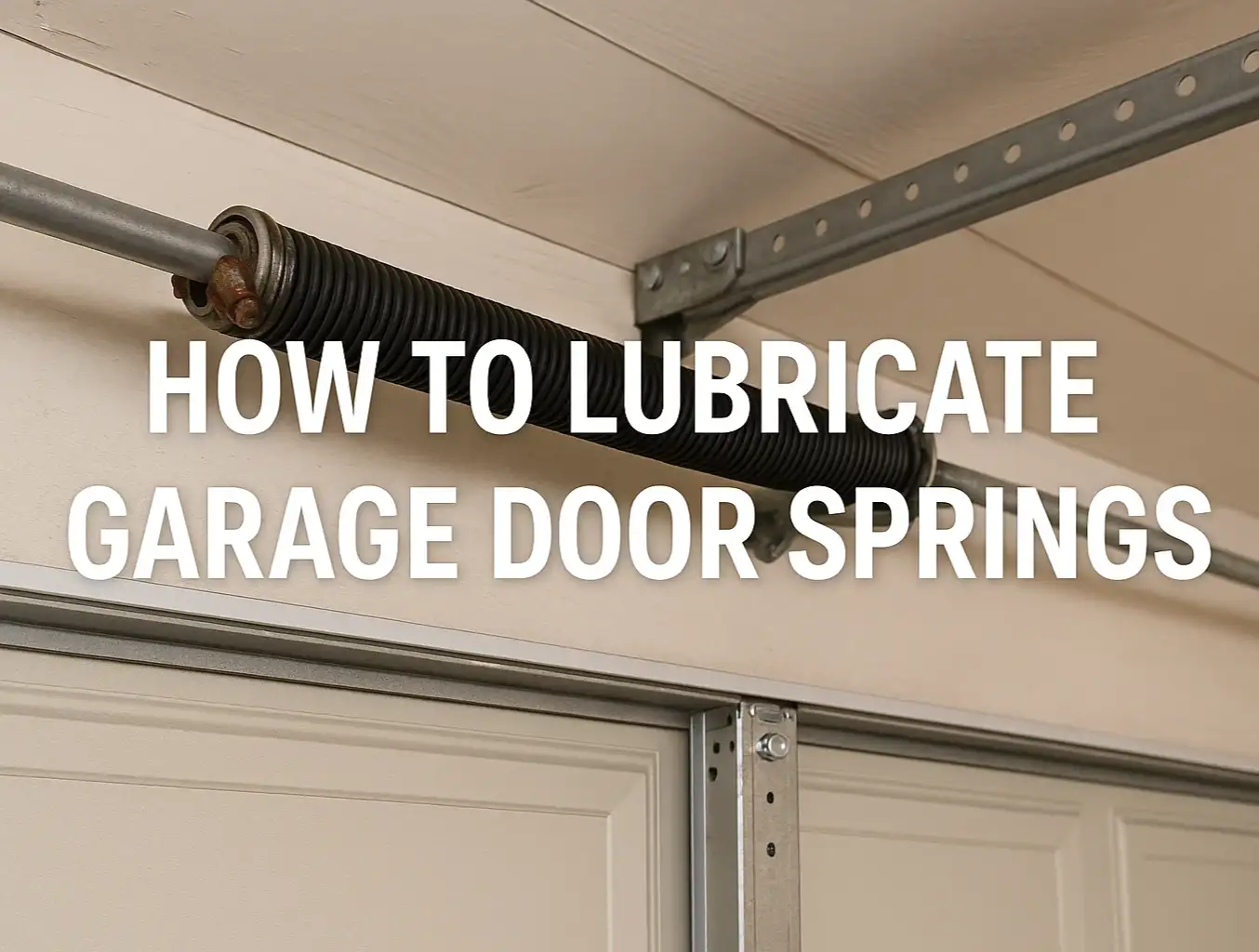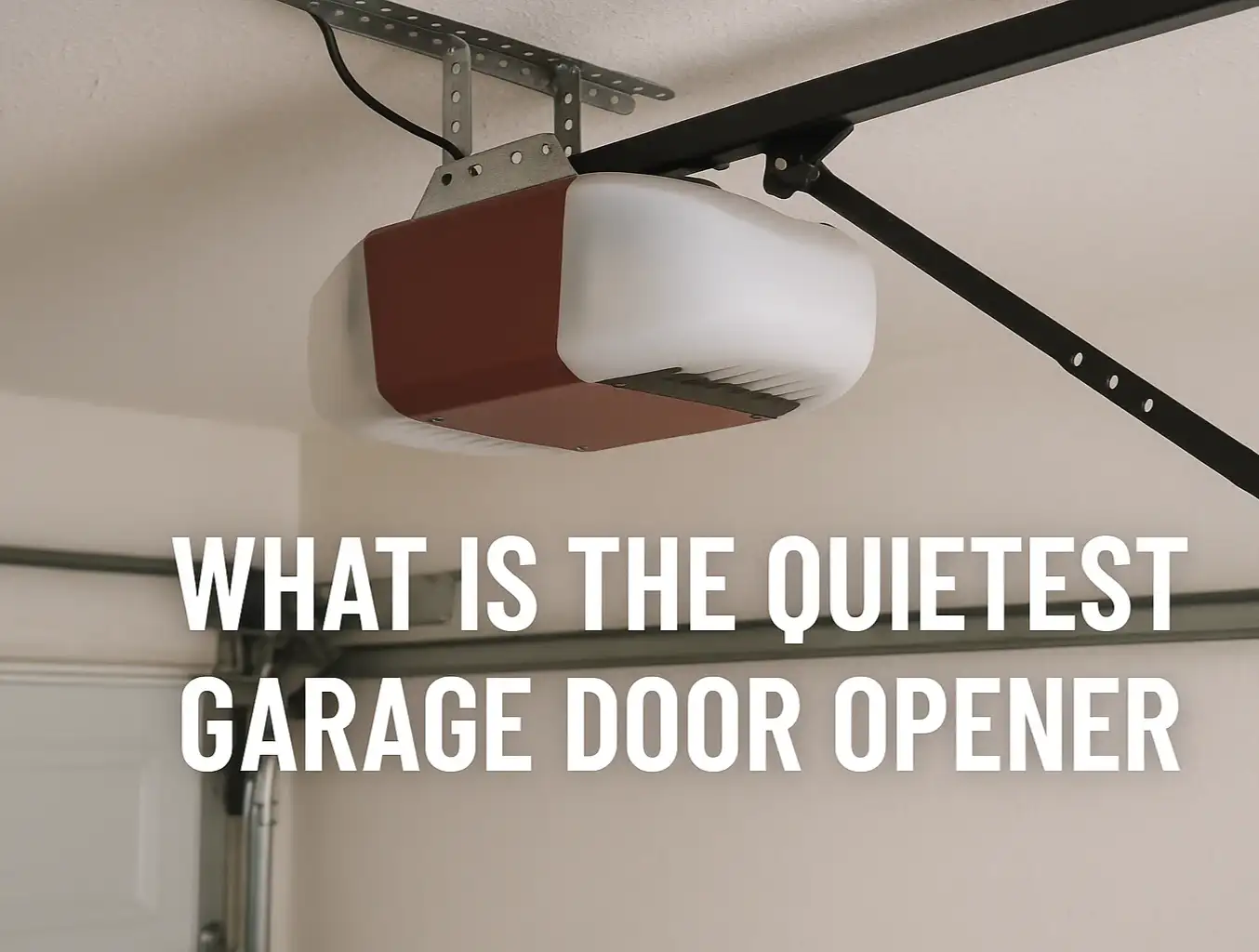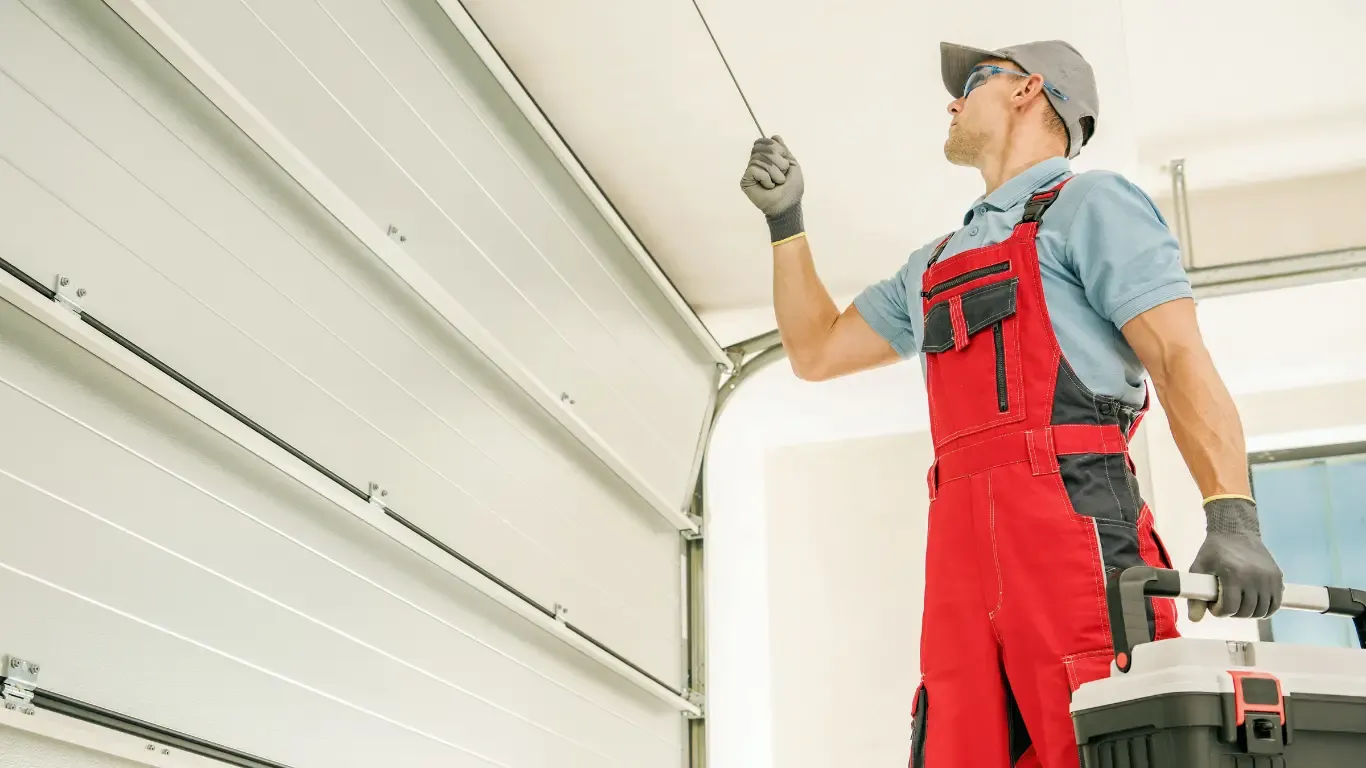Why Your Garage Door Is So Loud: 5 Common Causes and Fixes
Published: Nov 3, 2025
Do you hear your garage door groan, grind, or screech every time it moves? A noisy garage door is your system’s warning light — usually caused by friction, misalignment, or worn parts. In this guide, Up & Down Garage Doors explains five common causes and fixes: dry rollers and hinges, springs that cry out, loose hardware or crooked tracks, opener and rail noise, and worn seals or bent panels.
What’s That Racket? Quick Checks Before You Start
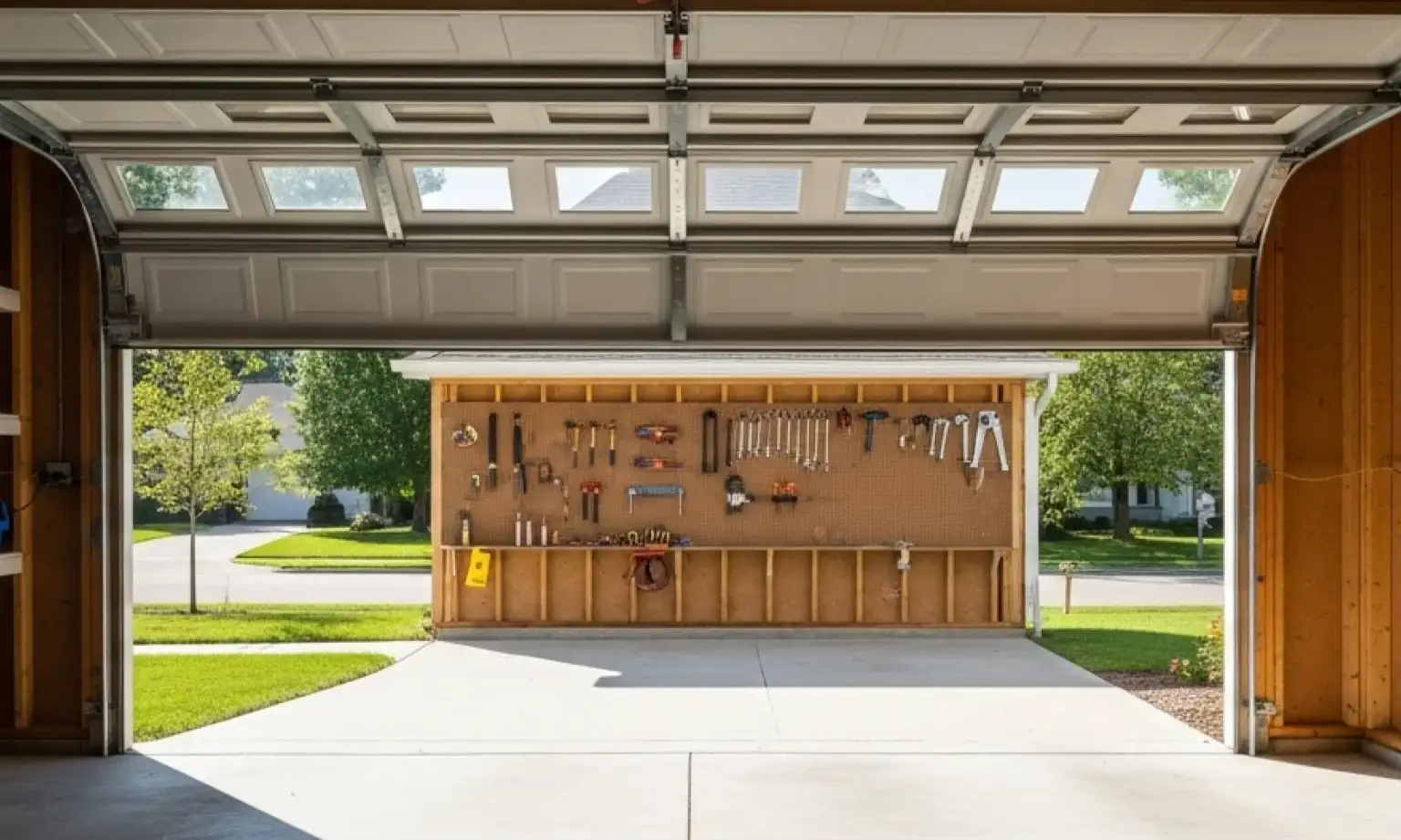
A noisy garage door is a warning sign that parts are under strain from friction, misalignment, or significant wear. Ignoring a squeaky garage door can lead to more serious problems — a snapped spring, a door off its track, or a burned-out opener motor. Before you start, listen closely to the sound.
- Is it a high-pitched squeal? This almost always points to friction and a need for lubrication.
- Is it a low, rhythmic thumping or rattling? This usually means hardware (nuts and bolts) is loose.
For a quick diagnosis, pull the emergency-release cord (the red handle) to disconnect the opener. Now, lift the door by hand. Is it still loud? If so, the problem is with the door itself (springs, rollers, tracks). If the noise is gone, the problem is in your opener (chain, T-rail, or motor).

Cause 1: Dry Rollers & Hinges
Why is my garage door so loud? Dry contact is the most common reason. A typical door rides on 10–12 rollers and dozens of hinges every cycle. When these metal-on-metal points lose grease, you get a high-pitched squeal. Nylon rollers are quieter, but their steel bearings still need attention.
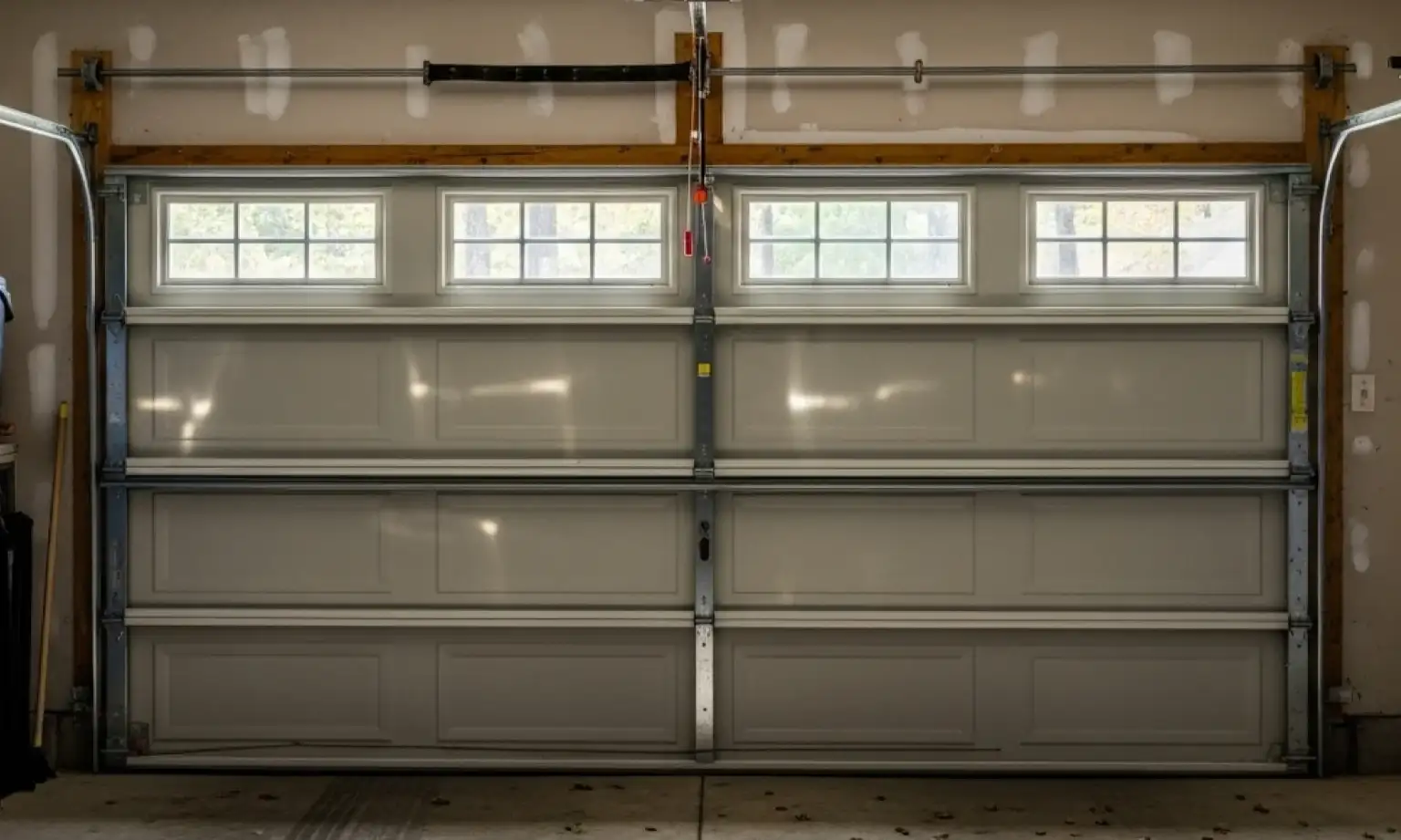
The Fix
The solution is to apply the right garage door lubricant, especially if your garage door rollers squeak. Never use thick axle grease (it gums up) or standard WD-40 (it attracts dust and can strip grease).
- For hinges & bearings: Spray a lithium-based grease into each roller’s bearings and on every hinge pivot.
- For tracks: Do not grease the tracks. Wipe them clean with a rag. If you have nylon rollers, a light silicone mist in the track can help them glide.
Need the details? Up & Down Garage Doors shows you how to lubricate a garage door.

Cause 2: Springs That Cry Out
How to quiet a noisy garage door? It often involves the spring system. The torsion spring (the large, tightly wound spring mounted above the door) does all the heavy lifting. As this massive spring coils and uncoils, the metal surfaces can bind and scrape against each other, creating a loud, groaning noise.
This spring is under extreme tension and can be dangerous to adjust. However, you can safely lubricate it.
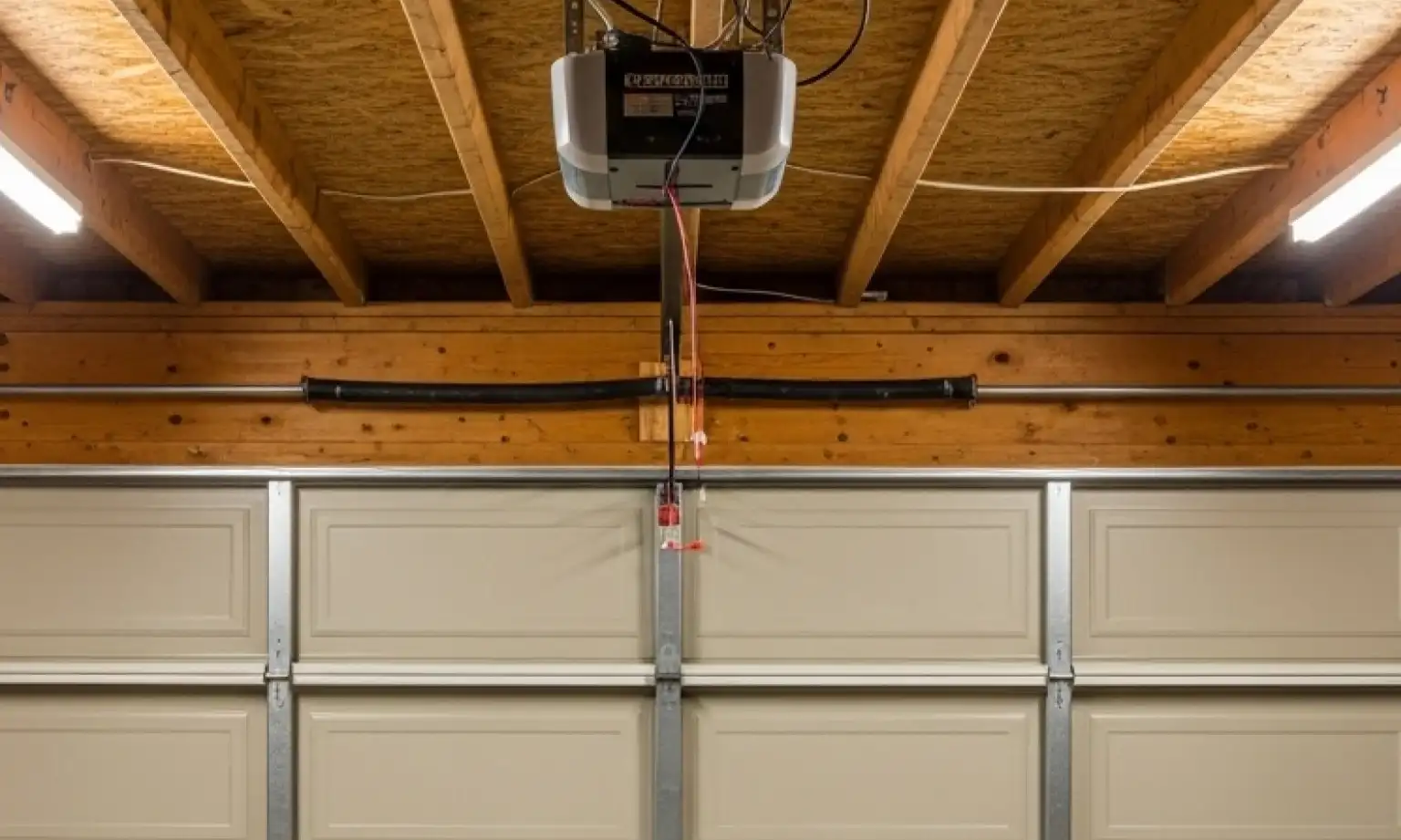
The Fix
When the garage door is closed (this is when the spring is under the most tension), stand to the side and spray a dedicated garage door spring lubricant or lithium grease along the entire length of the spring. This allows the coils to slide smoothly and quietly against each other.
A loud “BANG” is a different, more serious sound. This usually means the spring has snapped. If this happens, do not try to open the door. Schedule service for a broken garage door spring, as it requires immediate professional attention due to the high-tension components.

Cause 3: Loose Hardware or Crooked Tracks
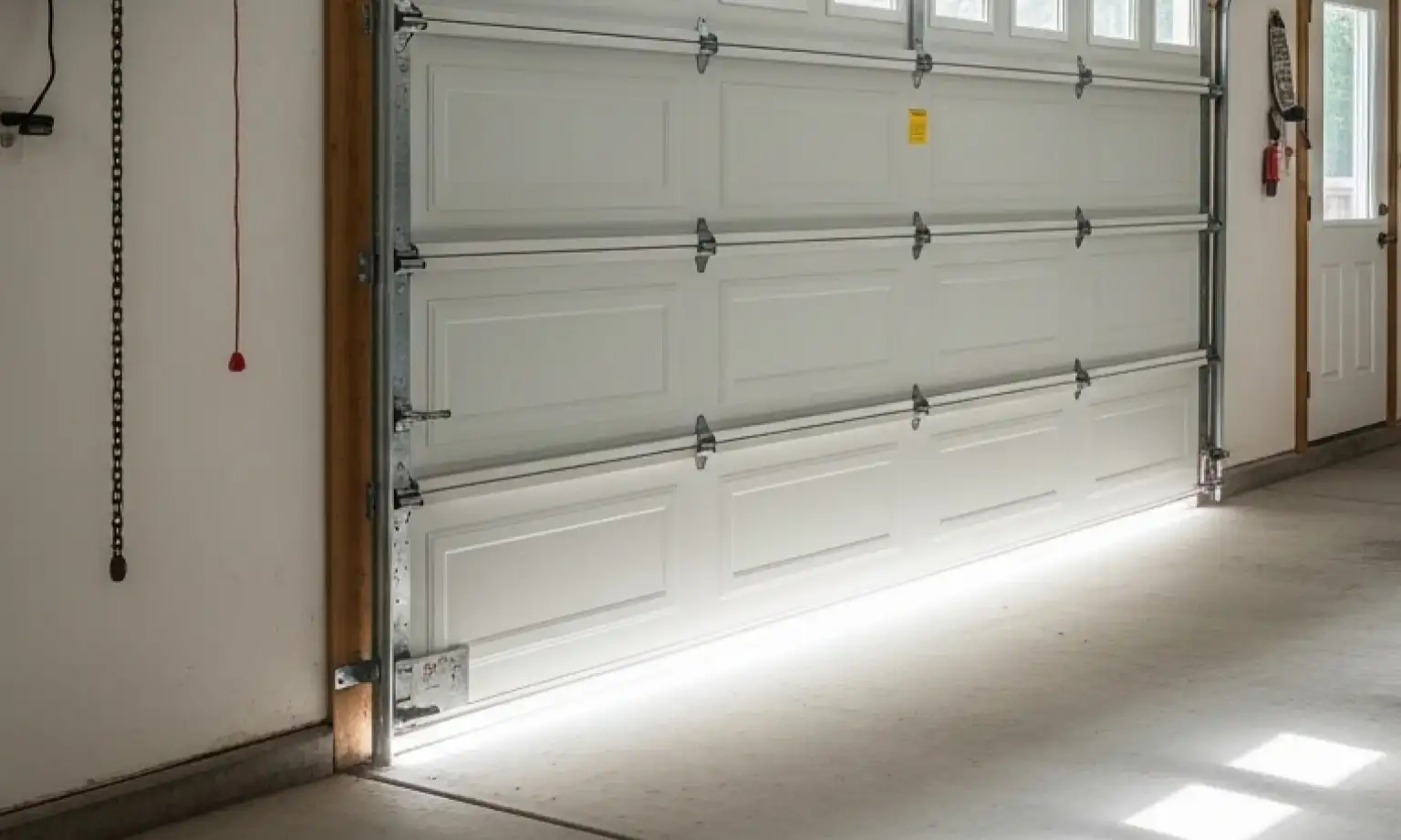
A rattling, shaking, or thumping sound points to loose parts. Routine tightening is how to fix a noisy garage door. Your door cycles a lot, and those vibrations loosen hinge bolts and track brackets over time.
The Fix
Grab a socket wrench (a 7/16-inch socket is common for garage doors) and work section by section.
- Tighten the bolts that fasten each hinge to the panels.
- Snug the brackets that hold the vertical and horizontal tracks to the wall and ceiling.
Be careful not to overtighten, as you could strip a bolt or crack a panel. Just make them snug. While you’re there, inspect the tracks. If they’re bent (for example, after a car bump), rollers will scrape and grind. Catching this now is how to fix a garage door rattle before it becomes a bigger repair.

Cause 4: Opener & Rail Noise
If the garage door squeaks when closing and the sound comes from the center rail, the opener is likely the culprit. The type of opener is the biggest factor.
- Chain-drive openers are very common and durable, but the metal chain running along the T-rail can be loud.
- Screw-drive openers use a long threaded rod to move the door. They can get very loud if the rail is not kept lubricated.
- Belt-drive openers are the quietest, using a steel-reinforced rubber belt. They are often paired with DC motors and are a great upgrade if noise is a major concern.
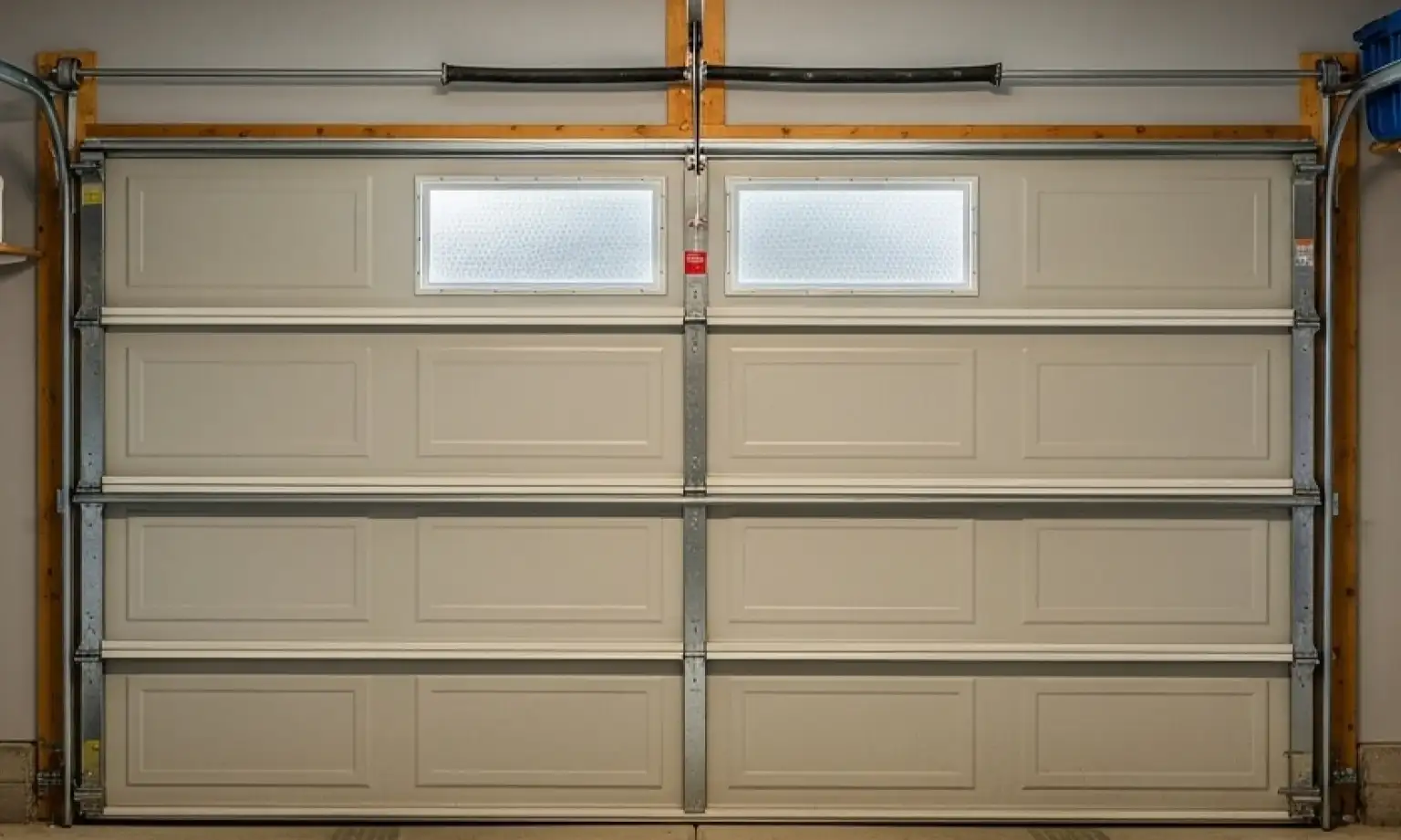
The Fix
Check your opener’s manual to find the best garage door lubricant for its drive type. Chain drives often require a light application of grease to the rail, while screw drives need a specific opener grease. Tighten the motor head and hanger hardware so vibration doesn’t shake the ceiling. If the motor grinds or hums under load, schedule garage door opener repair. Up & Down Garage Doors can also advise when a belt-drive upgrade will meaningfully cut noise.

Cause 5: Worn Seals, Bent Panels, or Offset Sections
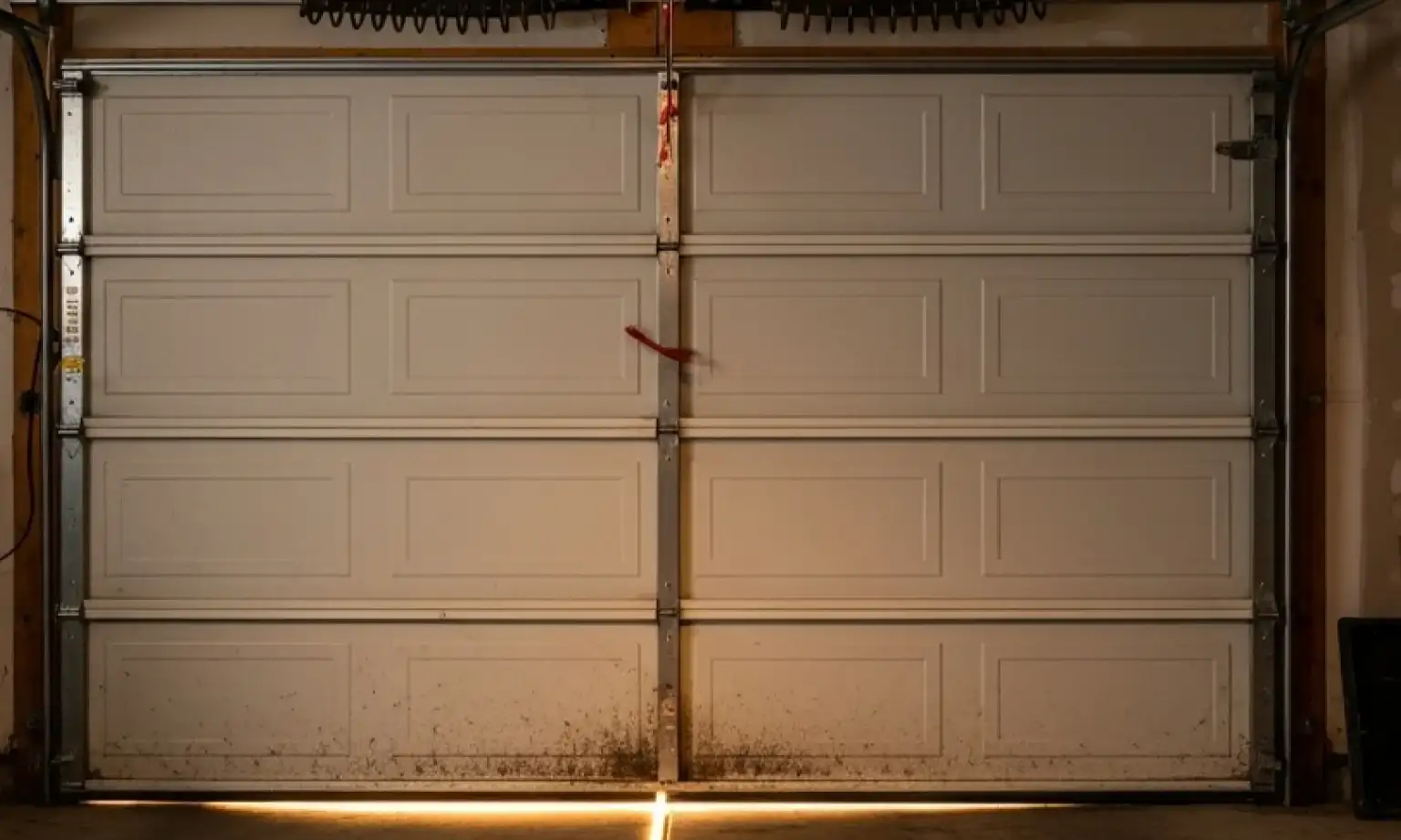
If you’ve lubricated and tightened everything, but the squeaky garage door sound persists, it’s time to look for worn-out parts or physical damage.
- Worn bottom seal: The rubber weatherstripping can harden and crack. When it hits the concrete, it can scrape or thud.
- Bent panels: Even a small bumper or basketball dent can bow a section, forcing rollers to bind in the track and scrape around the curve.
- Offset sections: If panels don’t sit flush, they can “pop” as they pass through the track radius.
The Fix
Replacing a bottom seal is a fairly simple DIY project. However, bent panels are a more serious issue. A technician can sometimes add a reinforcing strut, but often the panel itself will need to be replaced.

When DIY Isn’t Enough: Signs You Need a Pro
Knowing how to fix a garage door also means knowing your limits. DIY steps cover most squeaks, but some symptoms call for an expert:
- The door is crooked in the opening or has jumped a track.
- Cables are frayed or broken.
- The door feels very heavy to lift by hand (a sign of a failing or broken spring).
- A panel is badly bent and catching in the track.
These issues are not just noisy — they are dangerous. Spring and cable work involves high tension. Book professional garage door repair so an Up & Down Garage Doors technician can rebalance the door, set opener force and travel, and test the safety reverse.
Your Partner for a Quiet, Reliable Door
A noisy garage door is more than an irritation — it’s your system asking for help. By taking a few minutes to lubricate rollers, hinges, and springs and tighten loose hardware, you can solve most noise problems and extend the life of your door.
If you’ve tried these fixes and the noise won’t quit, or if you see a serious issue like a broken spring or frayed cable, don’t risk it. Contact the experts at Up & Down Garage Doors. We can safely and quickly find the source of the problem and get your door running smoothly and quietly again.
Need more information?
Get a free quote
Frequently Asked Questions
Where to spray garage door lubricant?
You should spray lubricant on all moving metal parts. This includes the roller bearings (the small spinning balls inside the roller), the hinge pivot points (where the hinges bend), the torsion spring (spray the entire length of the coils), and the lock mechanism if it’s stiff. Do not spray the nylon part of the rollers or the garage door tracks.
Should I use garage door lubricant silicone or lithium?
It’s best to use both for different parts. Use a white lithium grease spray for metal-on-metal parts like hinges and roller bearings. Use a silicone-based spray for metal-on-non-metal parts, like lightly misting the tracks for nylon rollers to glide in or spraying the vinyl weatherstripping to keep it flexible.
Why is my garage door so loud when it’s cold?
Metal contracts in cold weather. This makes the tracks, rollers, and springs slightly tighter, increasing friction. Lubricants also tend to thicken in the cold, which makes parts move less smoothly. This is why seasonal lubrication before winter is a good idea.
How often should I lubricate my garage door?
A good rule is to lubricate all moving parts once or twice a year. If you live in an area with a lot of dust or extreme temperature swings, you may want to do it seasonally (once in the spring and once in the fall).
You may also like
